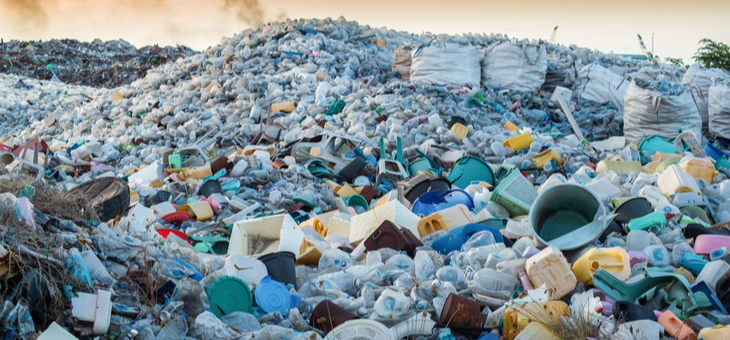Globally, people have produced 8 billion tonnes of plastic waste since 1950. Scientists estimate that between 4.8 to 12.7 million metric tonnes of plastic waste enter the ocean every year. Australia produces 67 million tonnes of waste every year.
You may remember that in January 2018, Australia’s waste management industry became a crisis when China banned the importation of 24 types of recyclable material. Late this year in May, Malaysia announced that it would be returning ‘non-recyclable waste’ from Australia back to Australia, deepening our recycling nightmare.
According to ourworldindata.com, in 2015, the packaging industry in global plastic waste generation, alone produced 141 million tonnes of it, sitting nearly 100 million tonnes ahead of any other sector.
While the government has offered $100 million in loans towards the local recycling industry in hopes of expansion, the domestic market for recycled plastics in Australia is not yet developed enough to sell the quantity of products produced. This means we need to encourage big brands to invest, incorporating locally recycled materials into their products rather than raw plastics.
The next time you take your bins out have a look inside. You may notice that a majority of the waste comes from food packaging. For those of us who remember refilling honey jars and using paper bags to carry our groceries, it may seem obvious that the excessive plastic used in food packaging is entirely unnecessary.
Stop using plastic straws
We’ve all seen pictures of just how turtles and plastic straws don’t get along. If you’re a straw addict, you can purchase reusable metal straws. Some bars and cafes are even beginning to charge people for the use of a plastic straw. If you have a packet of plastic straws at home, donate them to a local nursing home rather than throwing them out.
Use reusable bags
A single plastic bag can take 1,000 years to break down and approximately 100,000 marine animals are killed by plastic bags each year. While single use plastic bags are being phased out at most major supermarkets, it’s important to remember that the bags used to hold fruit and vegetables are still just as bad. Where possible, try to avoid them.
Give up the gum
Did you know that chewing gum is made of synthetic rubber … also known as plastic? Give it up in the name of the environment.
Choose the cardboard clad products
You may have noticed that you can buy products like juice or laundry detergent in either a box or a plastic bottle. Cardboard is more easily recycled than plastic, and breaks down faster.
Refill and reuse
You may have seen some shops return to the ‘good old days’ of filling reusable containers or paper bags with food from bulk bins. You can support this ecofriendly alternative by rewarding them with your business.
Avoid take away cups and containers
If you know you’re likely to get a takeaway coffee at some stage, make sure you leave the house with a keep cup. If you’re getting takeaway food bring your own container to be filled. This is becoming much more common and some coffee shops even offer a discount for people using keep cups.
Purchase plastic free
Whether it’s gladwrap, cotton buds, your tooth brush or the wrapping on all the foods we consume, we use and dispose of plastic at a rapid rate. Many smaller companies are bursting forth offering ecofriendly alternatives for many of these. Whether it’s wooden handle toothbrushes, reusable plastic-free swabs or beeswax wraps, try to make the plastic-free purchase.
Recycle at home
Other materials can also be reused on a local level. According to the ABC, cardboard and paper still make up over half the contents of Victoria’s recycling bins. You can rip up these materials and lay them on garden beds to deter weed growth, or add them to your compost or worm farms. Glass jars, rather than being tossed into landfill, can be reused as storage containers for dried foods or donated to op shops.
Write in and speak up
Your opinion matters. If you’re the loyal customer of a brand that uses unnecessary plastic, write in about your concern, letting them know that their customers care and want to see change. Write in to local politicians and let them know that they can’t push this issue onto the backburner any longer.
While these statistics may seem overwhelming, it’s important to understand just how significant the choices we make are. As consumers, we have the ability to direct markets. Each purchase we make is a vote. We choose either to comply with the current harmful standards of producers or to support organisations that are opting to make change.
If you enjoy our content, don’t keep it to yourself. Share our free eNews with your friends and encourage them to sign up.
Related articles:
Would you eat fake meat?
Where climate change will hurt most
Do you care about climate change?

